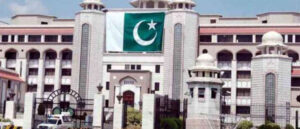New Legislation and Pakistan’s Evolving Political Landscape

In a pivotal legislative shift, Pakistan’s Parliament has recently passed new laws that President formally approved, marking a crucial step in fortifying governmental authority and solidifying the state’s political framework. This development comes on the back of the 26th amendment, further consolidating the government’s hold and introducing reforms with potentially lasting impacts on Pakistan’s political stability. From the extension of military leadership tenures to structural changes within the judiciary, these legislative changes aim to reshape Pakistan’s political landscape in fundamental ways.
Key Highlights of the Legislation
1. Extension of Military Chiefs’ Service Terms:
One of the most debated and significant reforms is the extension of the service term for chiefs of the armed forces, most notably the Army Chief. Traditionally set at three years, the tenure has been extended to five, with provisions allowing for further extensions at the discretion of the Prime Minister. This legislation addresses a longstanding source of political contention in Pakistan: the tenure of military chiefs. Historically, changes in military leadership have sparked intense public and media scrutiny, often unsettling the political environment. By setting a longer standard tenure, the government aims to remove this recurring source of debate, reducing volatility and promoting continuity in defense policy and national security.
This change is not merely administrative; it sends a clear message about the government’s intent to stabilize its relationship with the military institution, which is a cornerstone of Pakistan’s power structure. By ensuring a longer, stable tenure for military leadership, the government signals its commitment to a seamless, uninterrupted national security strategy.
2. Judicial Reforms:
Another major area of focus in the new legislation is the judiciary. The increase in the number of judges at Islamabad High Court and the Supreme Court addresses two pressing needs: handling the substantial backlog of cases and improving the efficiency of the judicial process. These additions come at a time when delays in the justice system are an ongoing issue, with tens of thousands of cases pending in courts, affecting the accessibility and timeliness of justice for ordinary citizens.
Opposition parties, notably the Pakistan Tehreek-e-Insaf (PTI), have expressed concerns that these changes may be aimed at countering perceived judicial alliances or biases. However, from a structural perspective, increasing judicial capacity is essential in light of the recent formation of a constitutional bench, which requires additional judges to function effectively. The expansion also aims to introduce a fresh perspective into the judiciary, potentially balancing and dissolving longstanding alliances while upholding judicial independence.
3. Revisions to the “Practice and Procedure Bill”:
One of the notable aspects of the legislative package is the adjustment to the “Practice and Procedure Bill,” which governs the formation of judicial benches by the Chief Justice. Previously, a three-member committee limited the Chief Justice’s discretion in bench formation, aiming to prevent potential biases in case assignments. The new amendments grant the Chief Justice more flexibility by allowing them to appoint one member of this committee, potentially fostering a balanced approach while still maintaining safeguards against excessive discretion.
Implications for Governance and Stability
These legislative changes collectively signal a more stable political trajectory for Pakistan, addressing areas of governmental, military, and judicial operation that have historically contributed to political instability.
Strengthening Government Continuity:
The extended tenures for military leaders eliminate a source of regular upheaval in the country’s political landscape. With reduced contention surrounding military appointments, the government can expect greater continuity and less frequent political crises, fostering a more stable environment for policy implementation.
Enhanced Judicial Efficiency:
The expanded judiciary could bring faster resolutions to a significant backlog of cases, which will improve public trust in the legal system. Furthermore, this move strengthens the structural integrity of the judiciary by addressing the need for a constitutional bench capable of efficiently handling high-stakes cases. While the opposition has raised concerns, this judicial expansion may bring much-needed balance and dilute any perceived judicial alliances, contributing to a fairer, more impartial justice system.
Balanced Judicial Powers:
Adjustments to the “Practice and Procedure Bill” illustrate a balanced approach to judicial autonomy. By allowing the Chief Justice to appoint a member of the bench formation committee, the legislation respects judicial independence while also ensuring that the decision-making process reflects a balanced, collective approach.
Political Opposition and Future Considerations
The opposition, particularly PTI, has voiced skepticism, viewing these reforms as a calculated attempt by the government to assert control over both the military and judiciary. Critics argue that extending the tenure of military leadership and increasing judicial numbers may consolidate the current administration’s influence over institutions traditionally viewed as autonomous or politically neutral. While these concerns highlight valid perspectives on potential overreach, proponents contend that these changes foster greater stability and governance continuity.
Moving forward, it will be crucial for the government to demonstrate that these reforms genuinely serve the broader national interest rather than any short-term political advantage. Transparency in implementing these changes and maintaining open channels for public accountability will be essential to dispel any perception of institutional overreach.
Conclusion
In summary, Pakistan’s recent legislative reforms represent a strategic move toward strengthening governance structures and reducing political volatility. By extending military tenures, expanding judicial capacity, and balancing judicial powers, the government aims to create a more stable political landscape conducive to long-term policy-making and development. As these changes take effect, they offer Pakistan an opportunity to advance toward a more robust and resilient political and judicial system, ultimately enhancing the nation’s stability and institutional integrity.








